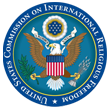International Standards for Constitutional Religious Freedom Protections

10 December 2011 – Washington, DC
The United States Commission on International Religious Freedom (USCIRF) has published recommendations for international standards for religious freedom protections. The recommendations are available online in the 10 December 2011 issue of the Yale Journal of International Affairs and also at the USCIRF website.
From the introduction to the recommendations:
Several countries in the world are or soon will be drafting new constitutions. It is vital that these constitutions protect universal human rights, including the right to freedom of religion or belief. Based on its experience analyzing constitutions against international standards,[1] the U.S. Commission on International Religious Freedom (USCIRF) offers the following guideposts for the full protection of religious freedom consistent with international human rights law:
Freedom of Religion is Universal Human Rights
The 193 member states of the United Nations have agreed, by signing the UN Charter, to “practice tolerance” and to “promot[e] and encourag[e] respect for human rights and for fundamental freedoms for all without distinction as to race, sex, language or religion.” These rights and freedoms include the freedom of thought, conscience, and religion or belief, which is protected and affirmed in numerous international instruments, including the 1948 Universal Declaration of Human Rights, the 1966 International Covenant on Civil and Political Rights (ICCPR), and the 1981 Declaration on the Elimination of All Forms of Intolerance and Discrimination Based on Religion or Belief.